New Zealand's economy has long struggled to move from volume to value, but a new research-based book says lessons can be learned from the Māori economy.
Co-author of The New Biological Economy: How New Zealanders are Creating Value from the Land, Richard Le Heron says the Māori economy has made some particularly striking advances.
He says Miraka, a Māori-owned company north of Taupō, uses geo-thermal energy to process up to 250,000,000 litres of milk a year into powder and heat-treated products
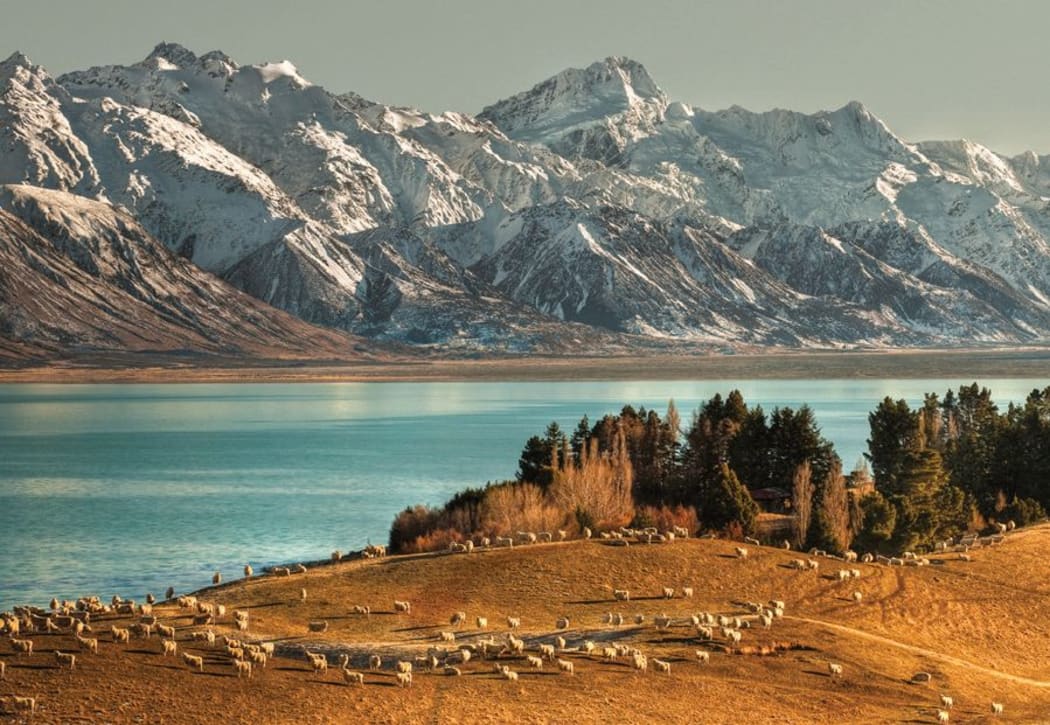
Photo: Auckland University Press
"There's a lot of what we refer to as cross-scaling associated with what they're [Miraka] doing - capsicum and tomatoes and suchlike drawing on the energy source that they have at their particular location," he says.
The New Biological Economy: How New Zealanders are Creating Value from the Land explores how high-volume, low value-add industries in New Zealand can continue to grow - and do so sustainably.
"We can do it with merino, we can do it with meat - and to a certain extent we can probably do it with dairy and with tourism as well," co-author Prof Eric Pawson says.
New Zealand has long had a “productivist focus”, Prof Pawson tells Kathryn Ryan.
"We made a lot of money off turning the country into a sort of pastoral paradise - off wool and then butter, and then lamb for the British market.
Then came the 1970s and the 'wall of wood', he says.
"We've gone into a commodity boom in dairy in quite quick order - this is really an outcome of investment over the last 20 years or so - and we've also gone in for what is to a certain extent volume-driven tourism over the exact same period.”
And the problem continues, he says.
"As we see it, one of the issues with dairy and tourism over the last couple of decades is that we're repeating exactly the same sort of behaviour."
"The question that always arose was 'how are we supposed to add value to that which we've produced'?"
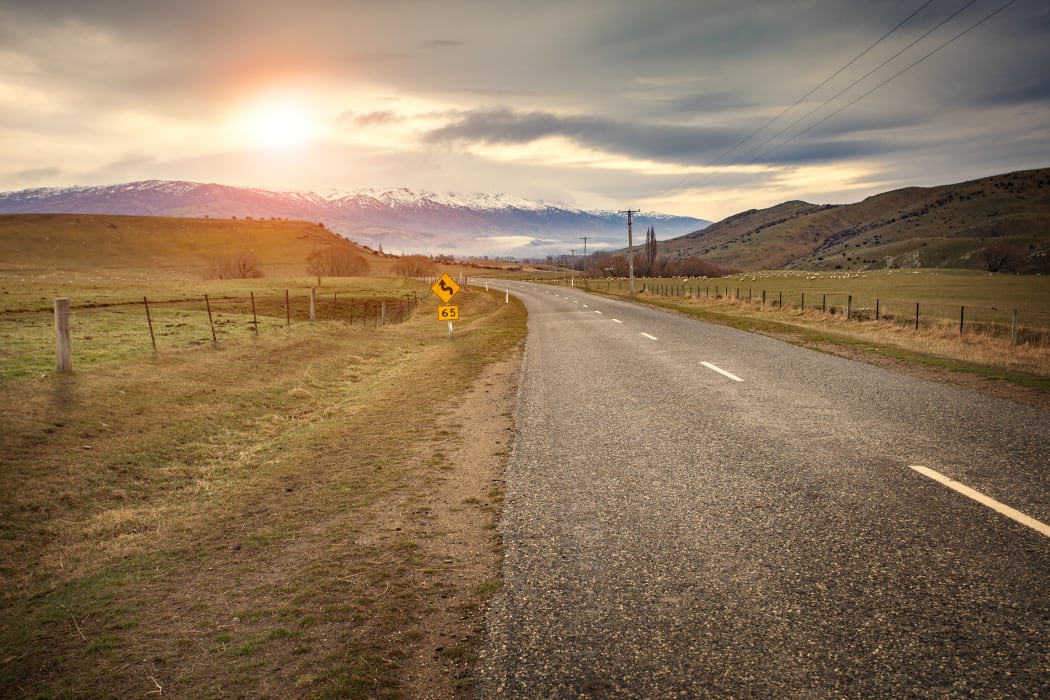
New Zealand has made use of its natural beauty and farmable land to build large-scale production industries, but has continued to export the base commodities those produce over investing in skills and technology to boost those products' value overseas. Photo: 123rf
A real-world viewpoint: Approaching the industry
Ten authors spent nine years talking with farmers and other commercial players to write the book, and Prof Pawson says it purposely avoided an academic approach.
"To get some perspective, and really ground it in what's happening on the farms, in the factories, and to try to make some connections that we don't think have been made sufficiently in the past."
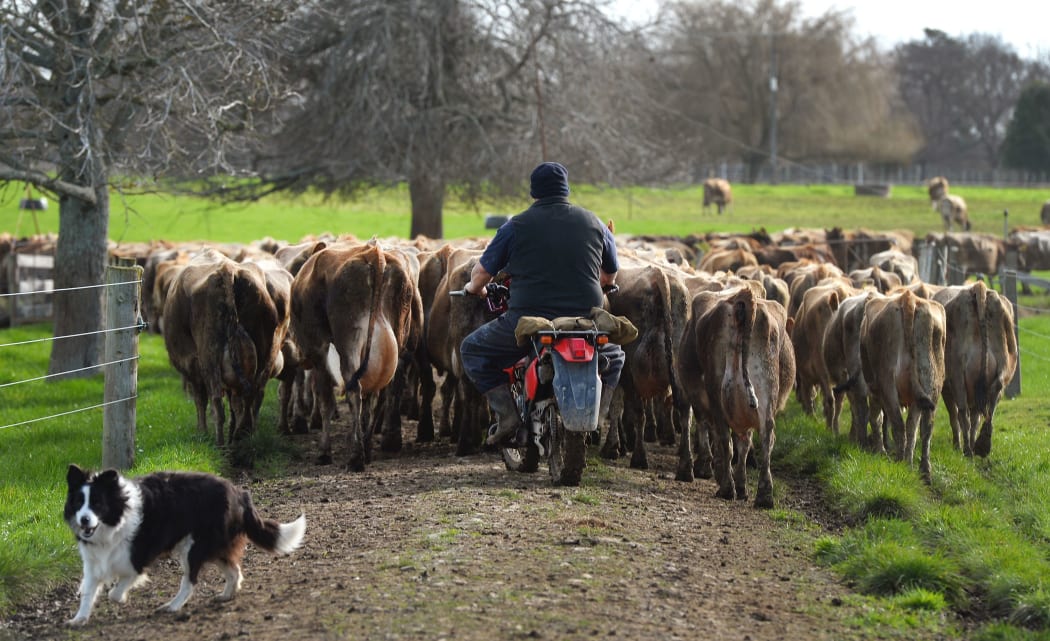
Photo: AFP
Prof Le Heron says they found that was initially a barrier for them.
"As we were talking to people we had to overcome that initial barrier of 'oh you're just an academic, why should we trust you to have a decent conversation with?'”
He says the problem the book addresses is one many in New Zealand’s productive sectors are already thinking about.
"People have said 'look, we haven't had a chance to do anything like this - we're so focused on what the day-to-day tasks are.”
Dairy and the taniwha economy
Despite those limitations, Prof Le Heron says there are already examples in the dairy industry of a shift to specialist, higher-value products.
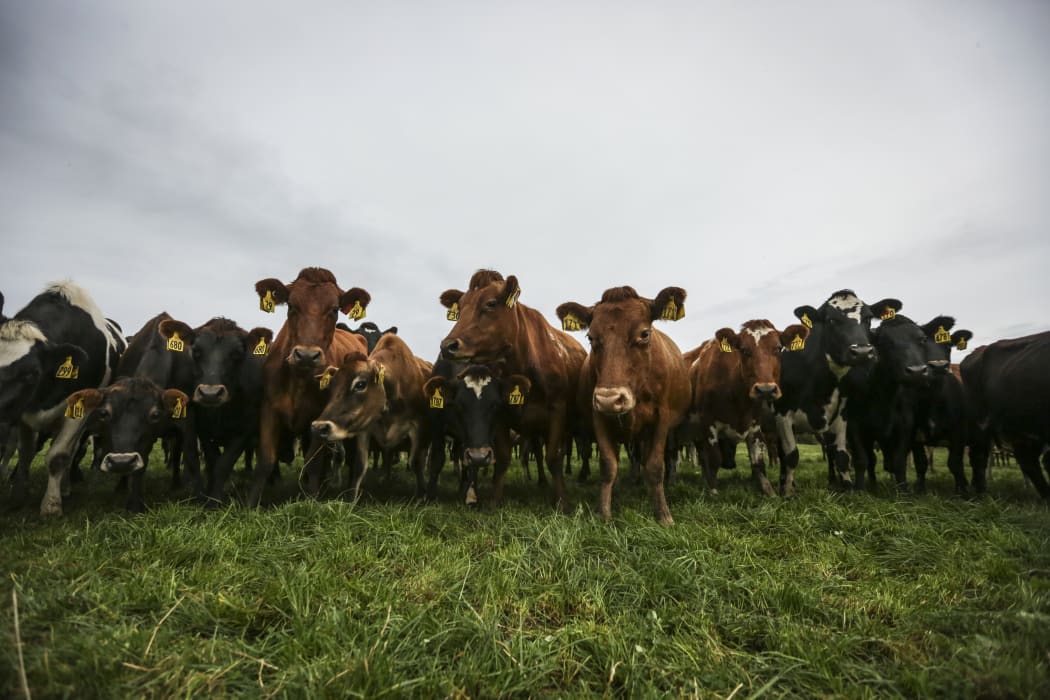
Photo: RNZ / Rebekah Parsons-King
"There's multiple stories of how to do dairying: There's been the experience of organic dairy farmers, the experience of biological economies dairy farmers, there've been dairy farmers who've elected to change their herd so they can produce A2 milk that might go into different kind of supply chains."
He says the Māori economy is also a leader in this area.
"If we look to what the Māori economy - the taniwha economy - has been up to in recent years, we can see that Māori enterprise has been able to expand in a whole variety of ways in meeting different sorts of targets as well as producing - in the case of dairy - quite a lot of milk."
He says the example of Miraka, a Māori-owned company north of Taupō, which uses natural gas to process up to 250,000,000 litres of milk a year into powder and heat-treated products, is particularly notable.
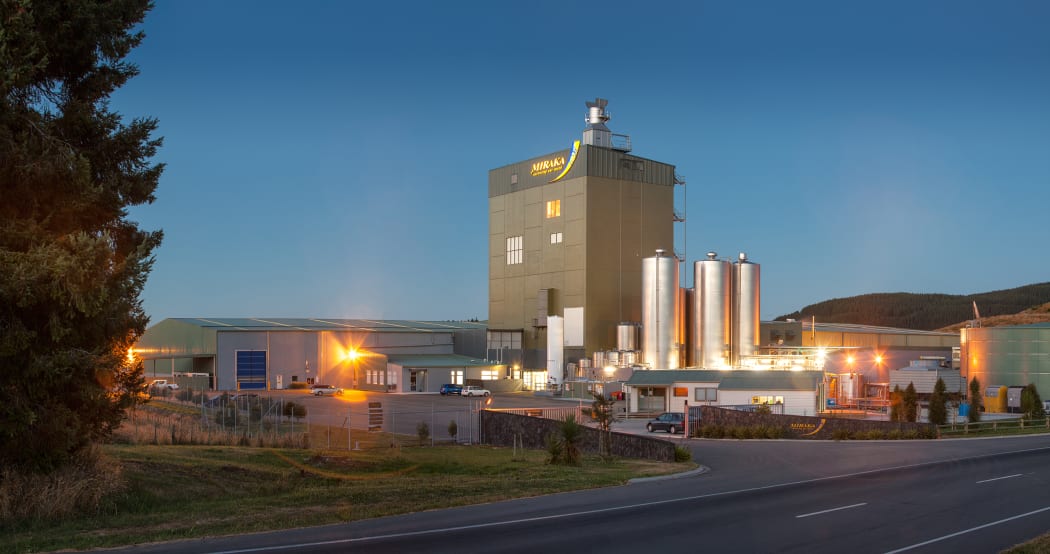
Photo: supplied
"There they've got sort of a collective interest of quite a lot of dairy farmers locally who've committed into the Miraka economy.”
He says they've also made important connections with their consumers, linking up with Vinamilk, Vietnam's largest dairy company.
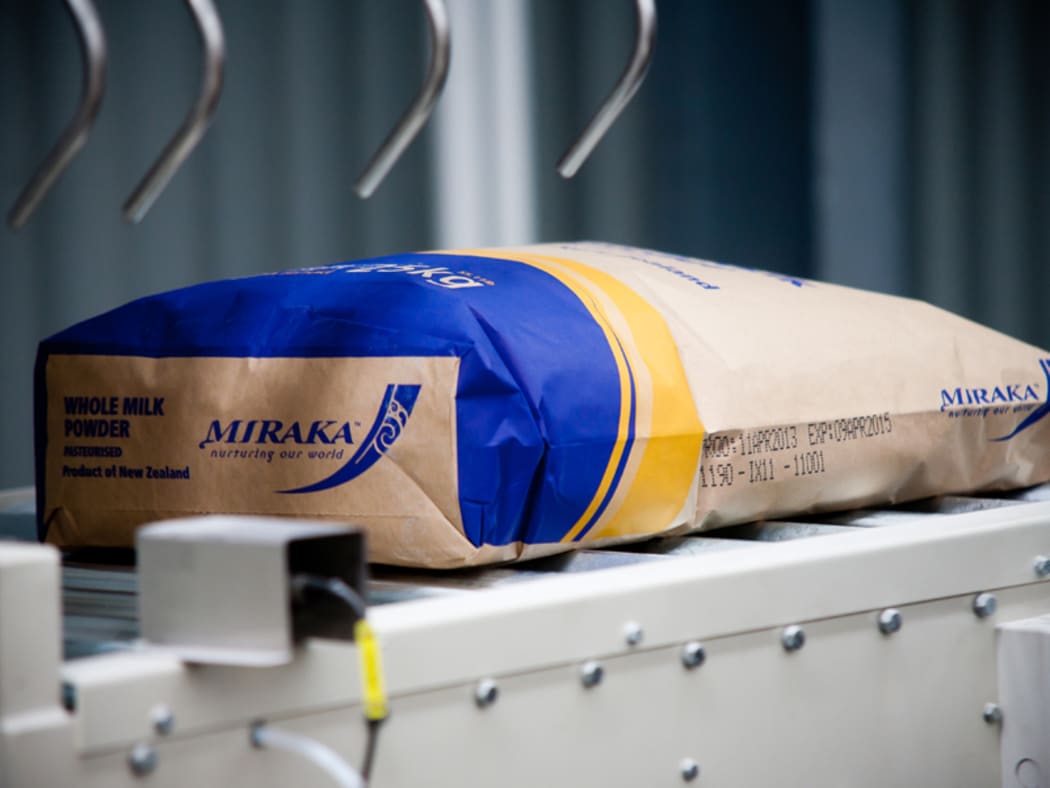
A sack of Miraka milk powder. Photo: miraka.co.nz
He says a comment at a workshop in Wellington in 2012 stands out to him.
“One of the participants who was very high up in the corporate sector said ‘my guess that it’s likely in the next decades that Māori will be providing the leadership for agriculture’.
"When you look at the [Miraka] example and Wakatū in the Nelson area and other examples ... you can see more than just glimpses of the way in which different kind of connecting has been carried out, the way in which relationships have been worked on.”
Merino: Premium markets, premium supply chains
Prof Pawson says stronger links between consumer and producer is another way to add value.
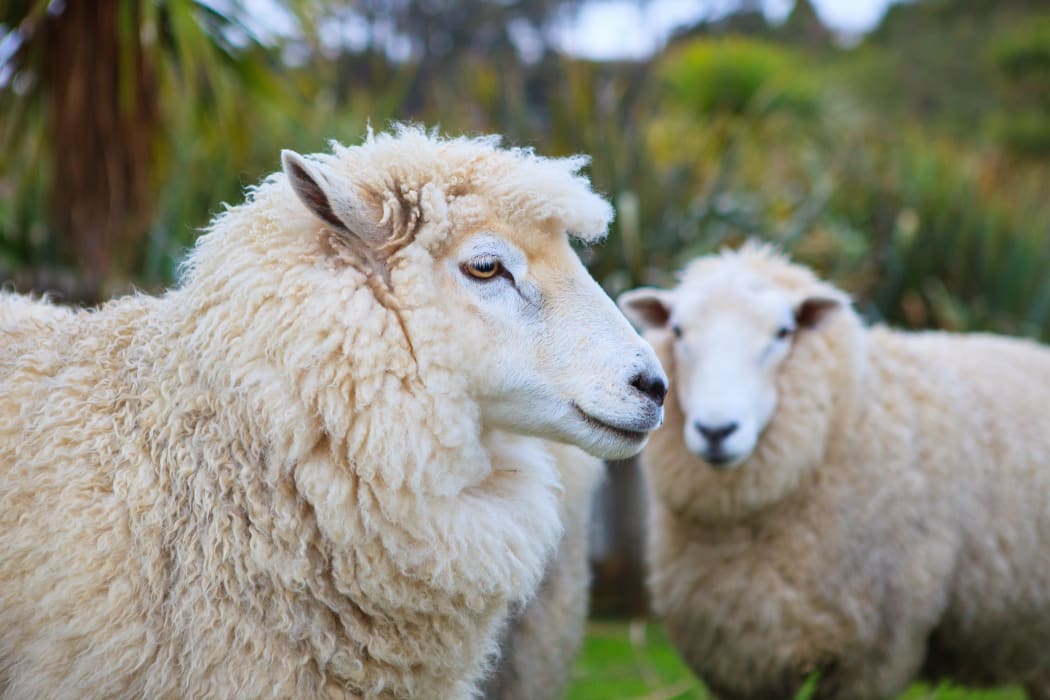
New Zealand merino sheep in rural livestock farm. Photo: 123RF
The Merino industry over the last 20 years is a fine example of this, he says.
The New Zealand Merino Company, he says, works with a series of partners worldwide to tell a story about South Island high country wool and create a strong valuable brand.
Watch, listen, read more (click here):
- Inside a Vietnam-based New Zealand merino factory
"So, merino I think is a very fine example of how you move from commodity to value generation and weave stories about the attributes of the product: the people who produce it, the places in which it's produced.”
The New Biological Economy authored by Eric Pawson and the Biological Economies Team (Richard Le Heron, Hugh Campbell, Matthew Henry, Erena Le Heron, Katharine Legun, Nick Lewis, Harvey C. Perkins, Michael Roche and Christopher Rosin) is published by Auckland University Press.

